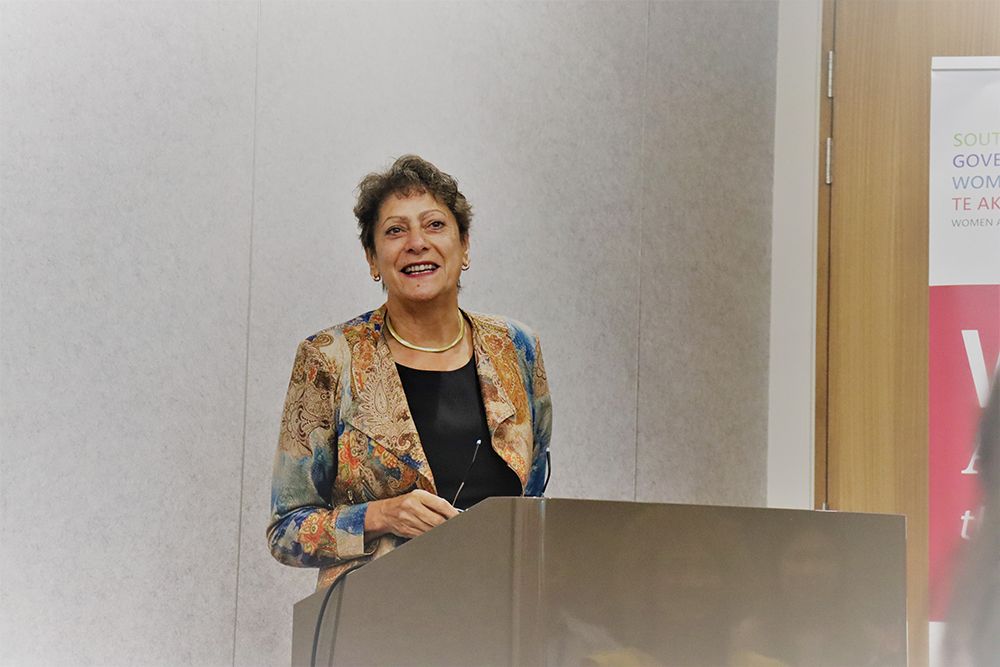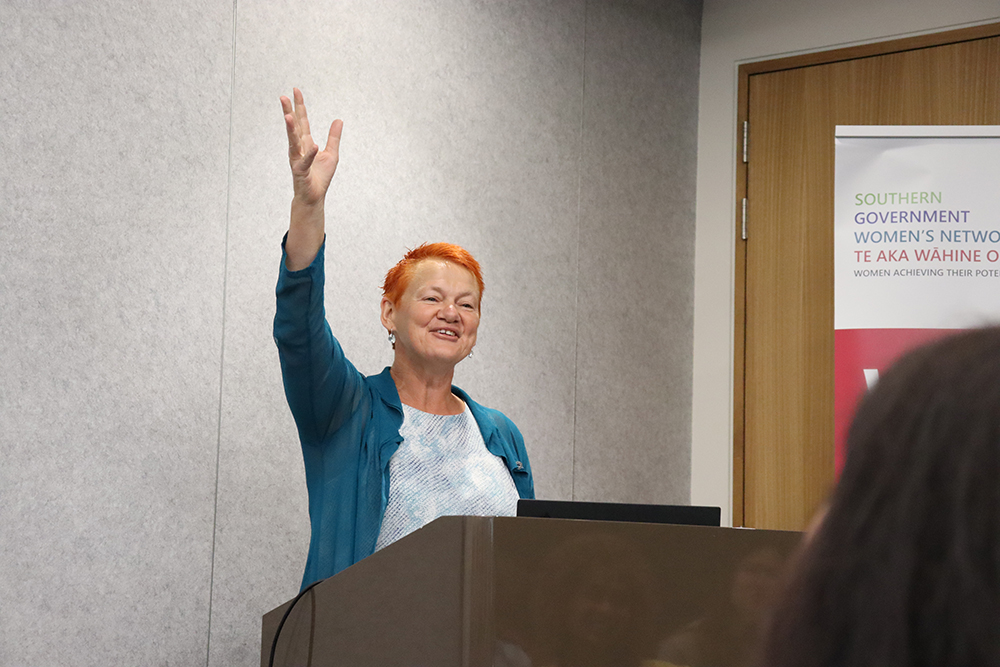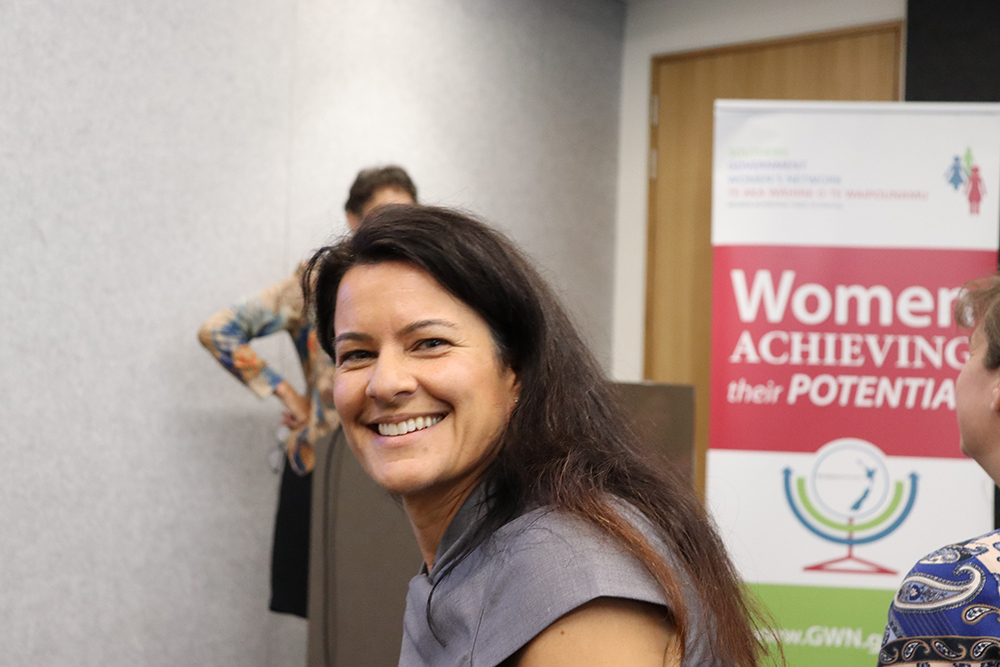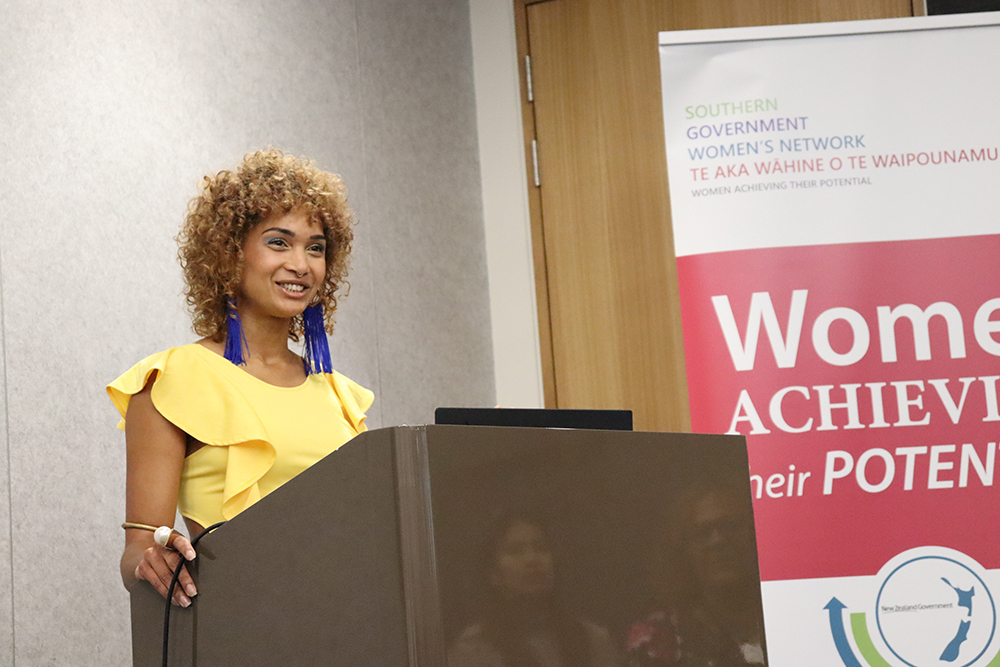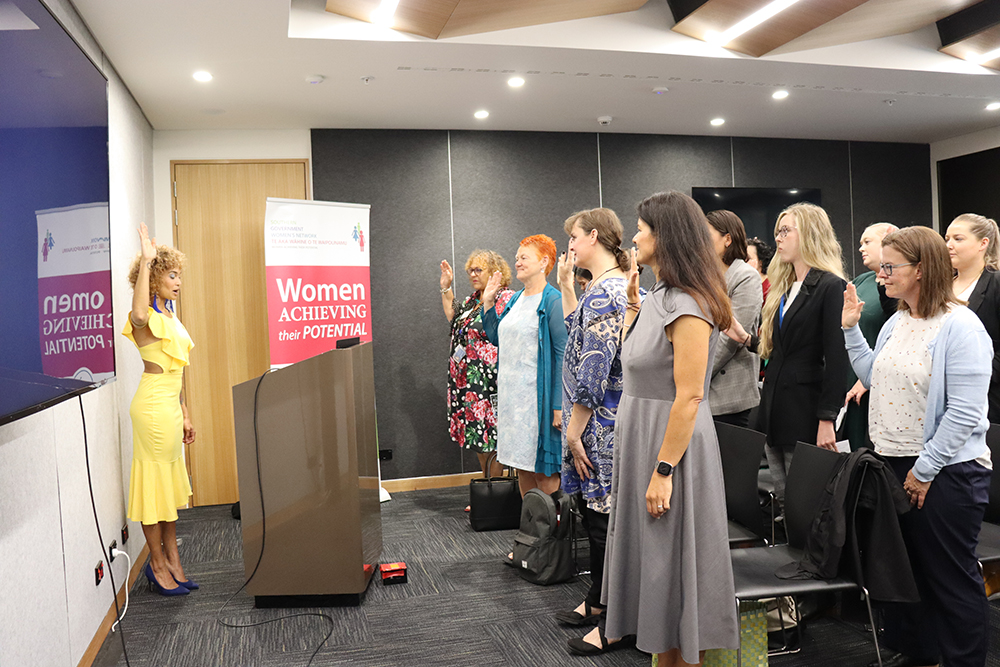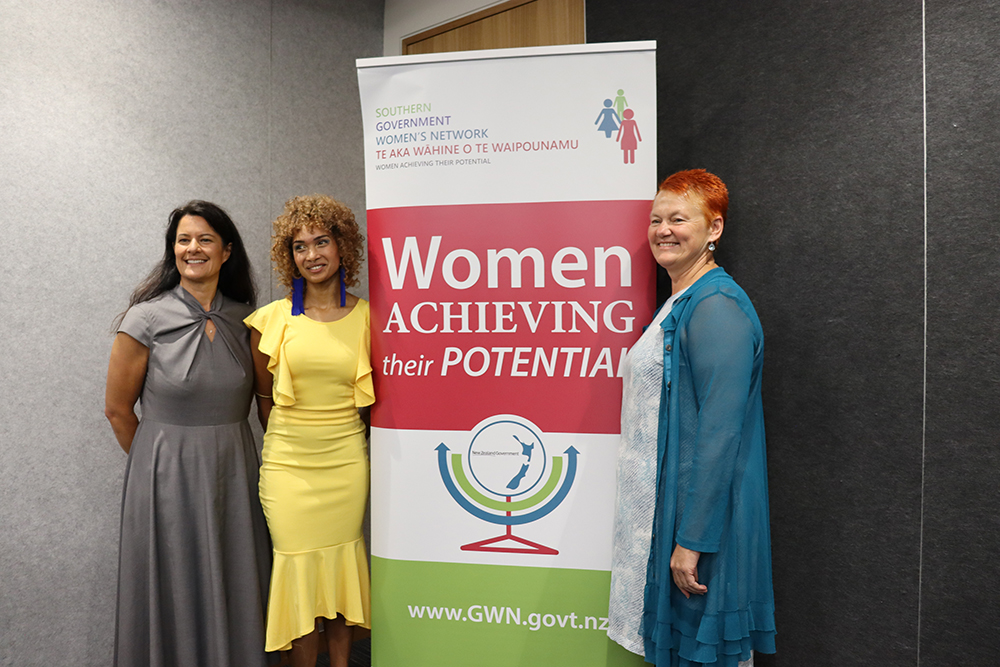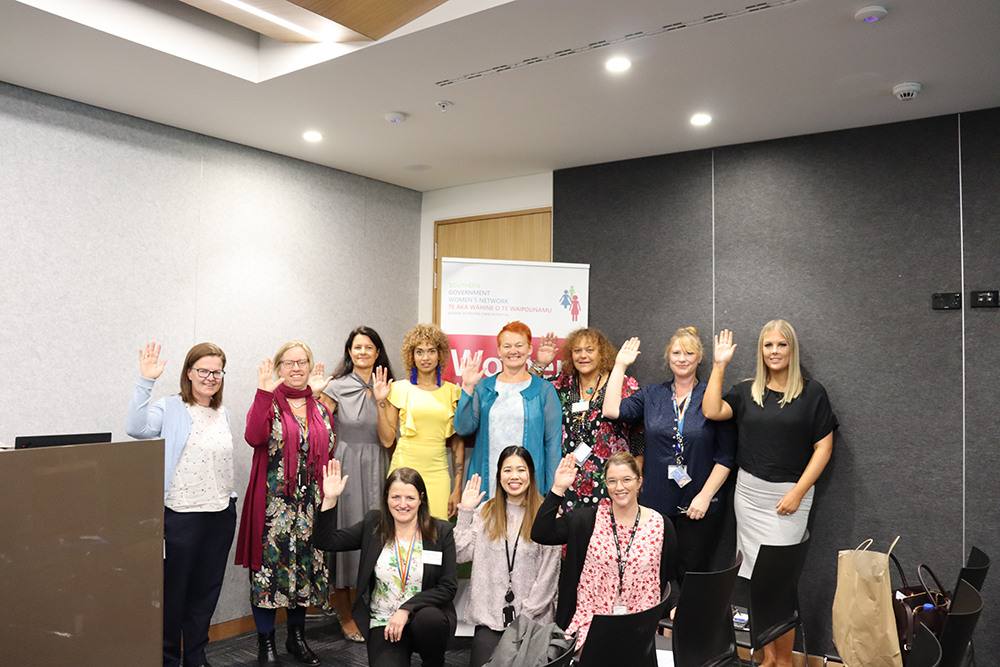SGWN IWD 2021 celebration
Speakers: Hon. Poto Williams, Rachel Leota, Helen Leahy, Sophie-Claire Violette
Host: Southern GWN
Venue: Media Room, CJESP
Date: Friday, 12 March 2021
Attendance: 60
Southern GWN was pleased to host four amazing speakers as they celebrated International Women’s Day (IWD), and spoke on this year’s IWD theme: “Choose to Challenge.”
Our opening speaker, Hon. Poto Williams, is the second Cook Islander to be elected to Parliament, and currently holds the Police portfolio. Poto acknowledged that challenging bias and inequality can be repetitive and exhausting but it is worth it. The Minister encouraged bringing people from diverse backgrounds onto boards, which can make room for better equality decisions to be made. Culture changes are still a work in progress across government departments – but women’s networks can assist with changes.
The second speaker, Acting Chief Executive at Ara Poutama Aotearoa Department of Corrections, Rachel Leota, shared insights into how women are perceived and personal examples of the impact of television on perceptions and prevalence of gender bias when it comes to men in leadership roles. Ara Poutama is addressing these issues with their highest-ever rate of women in custodial roles: 49.2%. Women were declared eligible to fill prison roles in 1985. Corrections has also closed their gender pay gap to .08%.
Chief Executive of Te Pūtahitanga o Te Waipounamu, Helen Leahy, based her speech on a quote by Audre Lorde: “It is upon our ability to look honestly upon our differences, to see them as creative rather than divisive, that our future success may lie”. Helen shared some amazing initiatives started by wāhine Māori to restore the essence of who they are by putting traditions at the heart of whānau. These included Waka Whenua, Kakano Café, Omaka Pa, Koha Kai and Yoga Warriors.
The final speaker, Cultural Anthropologist Sophie-Claire Violette, challenged the audience to review their perception of status quo which tends to be based on a patriarchal system. Sophie-Claire inspired the audience to adopt an intersectionality framework. By being inclusive of those who may be disenfranchised by social and political systems – women, black women, black lesbian women, black lesbian muslim women, LGBTQI, disabled women, etc. – we can begin to address problems and give voice to those without one, and empower people at grass roots level without erasing who they are.
Key messages
- You are allowed to ‘be the change’
- Challenge status quo if it’s not working or could be improved
- It’s ok to ask for help
- Find people (women and men!) who support your journey
- Call out gender bias and inequality
- Seek out and celebrate women’s achievements
- Challenge through architecture, policy, practice
- Be an ally to marginalised women
- Acknowledge privilege and power you may hold and use that to help.
